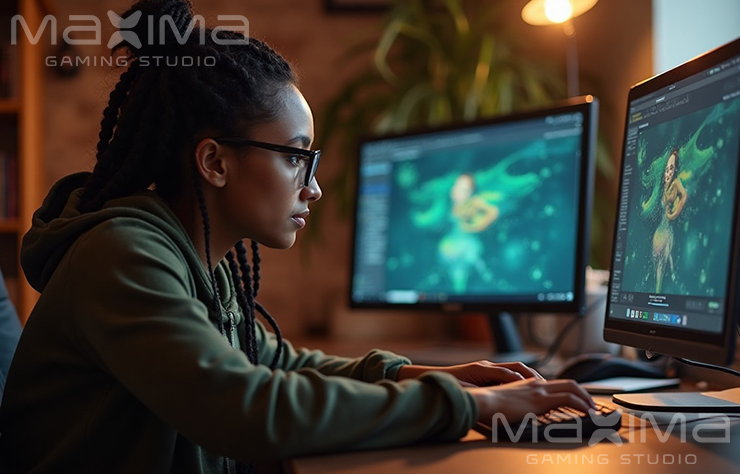 June 2, 2025
June 2, 2025
How Indie Developers Can Use AI to Build Next-Gen Games?
The indie game scene has never been more vibrant or competitive. With limited resources but abundant creativity, indie developers constantly seek tools that can help them punch above their weight. Enter Artificial Intelligence (AI) — a game-changing ally that’s empowering indie studios to build next-generation games faster, smarter, and with richer experiences.
In this article, we’ll explore how indie developers can leverage AI at every stage of game development, from design and coding to testing and marketing — unlocking possibilities once reserved for big studios.
Why AI Matters for Indie Developers
Indie studios often face constraints like small teams, tight budgets, and limited time. AI helps level the playing field by:
- Automating tedious, time-consuming tasks.
- Enhancing creativity and ideation.
- Providing affordable, accessible tools previously out of reach.
- Improving player experience through personalization and smarter NPCs.
AI in the Game Design Process
Procedural Content Generation
AI-powered procedural generation allows indie devs to create vast, unique game worlds or levels without manually designing every element. This not only saves time but can add replayability by offering dynamic environments.
AI-Assisted Storytelling
AI-driven narrative tools can help generate branching dialogues, quests, or lore, enriching the game’s story without heavy writing resources.
Coding and Development Boosts
AI-Powered Code Assistance
Tools like GitHub Copilot or GPT-based assistants help indie programmers write and debug code faster. They can generate snippets, suggest solutions, or even help learn new programming languages or frameworks.
Automating Testing and Bug Detection
With limited QA testers, AI bots can simulate player actions to detect bugs and balance issues early, speeding up the release cycle and improving quality.
Art and Animation Made Easier
AI-based tools generate 3D models, textures, animations, and even sound effects from simple inputs or sketches. Indie artists can focus more on the creative vision while AI handles the technical grunt work.
Marketing and Community Engagement
AI helps indie devs analyze player data to tailor marketing campaigns, predict trends, and engage communities with personalized content, boosting discoverability in crowded marketplaces.
Real-World Examples
- Noita used procedural generation to create unique physics-based gameplay.
- Small studios employ AI chatbots to handle community queries.
- AI-generated music and soundscapes enrich indie game atmospheres.
Challenges for Indie Devs Using AI
- Learning curve and integration effort.
- Ethical concerns about AI content originality.
- Dependence on third-party AI services.
Conclusion: The AI Advantage for Indies
AI is a powerful enabler for indie developers, opening doors to innovative gameplay, efficient workflows, and competitive marketing — all crucial in today’s saturated game market.
By embracing AI thoughtfully, indie studios can build next-gen games that rival big-budget productions, delight players, and carve out lasting success.


